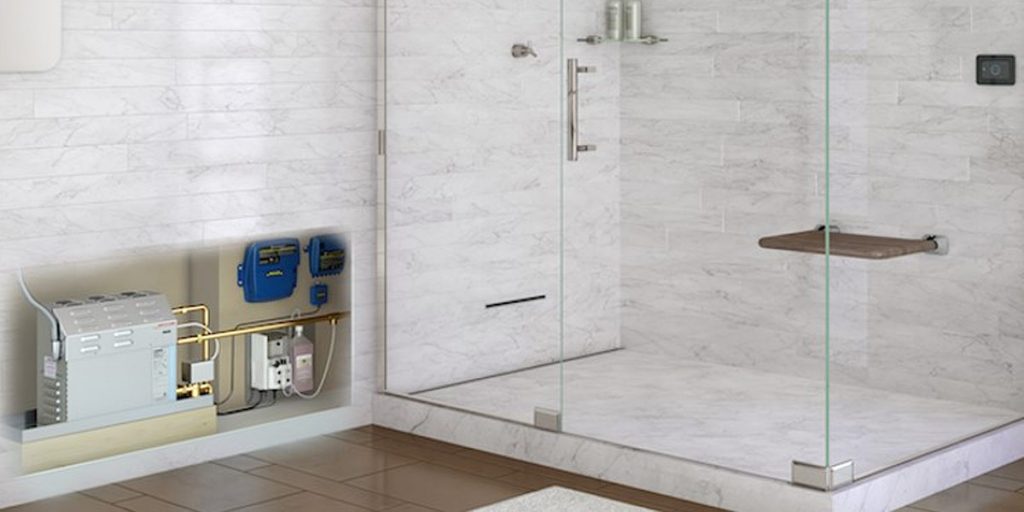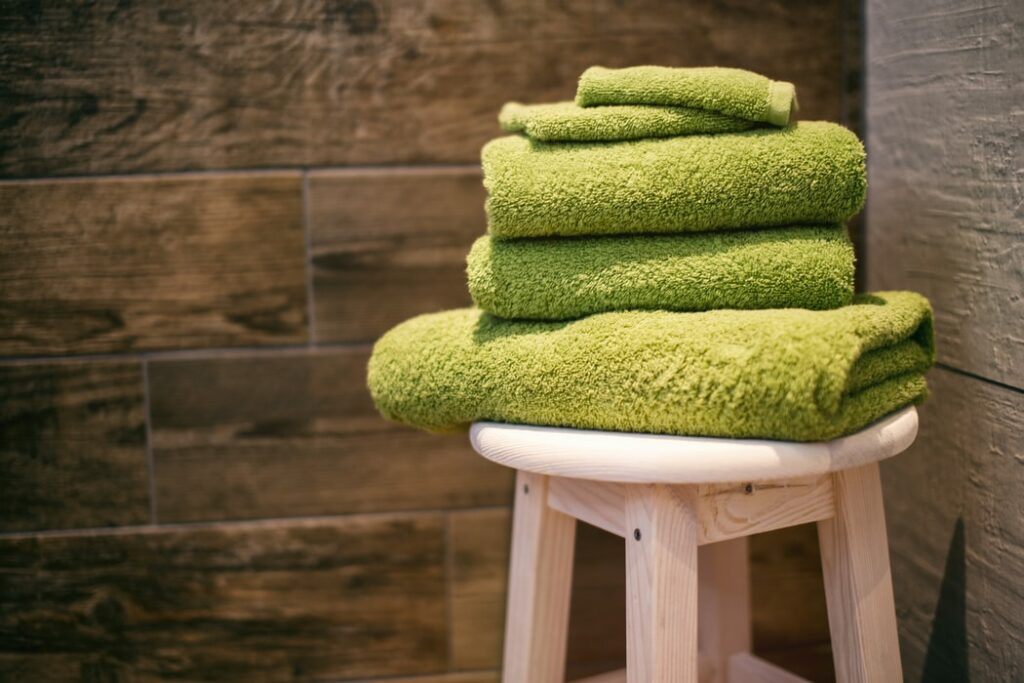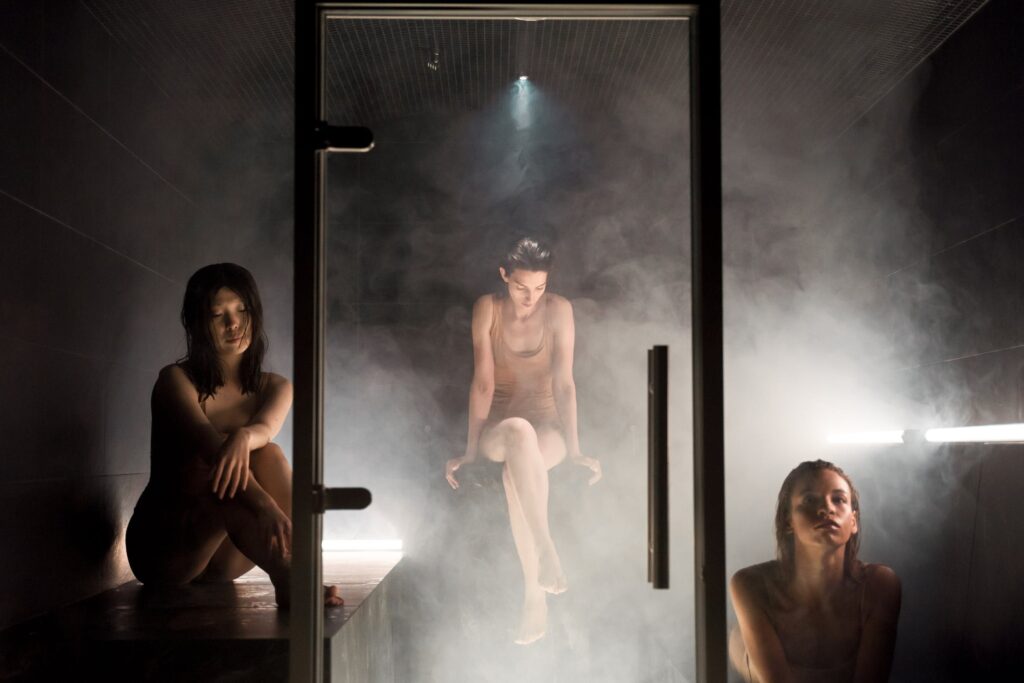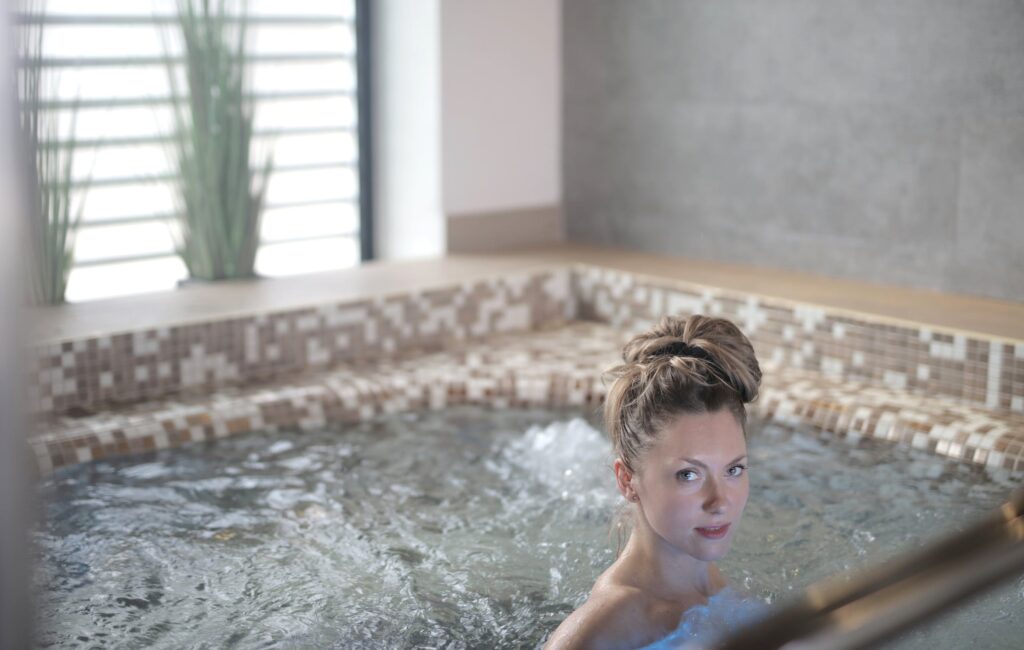What precautions should you take when using a portable sauna? Have you ever considered the risks of sauna and how to lessen them? So that you can reap the health advantages of this age-old practice without putting yourself in danger, this article will cover the fundamentals of portable sauna safety.
Drink plenty of water, limit your sauna time, and maintain a reasonable heat setting when using a portable sauna. Following these three simple rules will help you avoid dehydration, hyperthermia, and other dangers while using a sauna. Prioritise safety at all times, and you can reap the stimulating benefits of saunas without putting yourself in harm's way by following these rules.
These safety measures are important, but they are only some of what portable saunas offer. The essay will go over how saunas improve your health, such as stress relief and better blood flow. To ensure you get the most out of your sauna time, we will also offer tips from renowned health experts on making the most of portable saunas.
Definition of a Sauna
A sauna is a room heated between 158 and 212 degrees Fahrenheit (70 and 100 Celsius). Dry heat is typically used in traditional Finnish saunas, with 10% and 20% relative humidity. The air is more humid in certain other sauna styles. For instance, in Turkish-style saunas, the humidity is increased. Saunas have been shown to increase core body temperature by as much as 40 degrees Celsius (104 degrees Fahrenheit).
Sweating heavily is a natural response to a rising core body temperature. When the body gets too hot, the heart rate rises as a protective mechanism. You may easily sweat out a pint in a sauna, even if you're just there for a few minutes.
Types of Saunas
The method of heating the chamber determines the type of sauna. Among these are:
Wood Burning
The sauna area and sauna rocks are heated with wood. Traditional saunas that use wood tend to have high temperatures and low humidity.
Electrically Heated
Electrically heated saunas are hot and dry in the same way that traditional saunas heated with wood are. A floor-mounted electric heater warms the sauna room.
Infrared Room
Saunas heated by wood or electricity differ from far-infrared saunas (FIRS). Light waves from these lamps warm only the person sitting before them, not the entire room. Even though the temperature is lower than in traditional saunas, the result is the same: heavy perspiration. Infrared saunas are typically warmed to around 60 degrees Celsius.
Steam Room
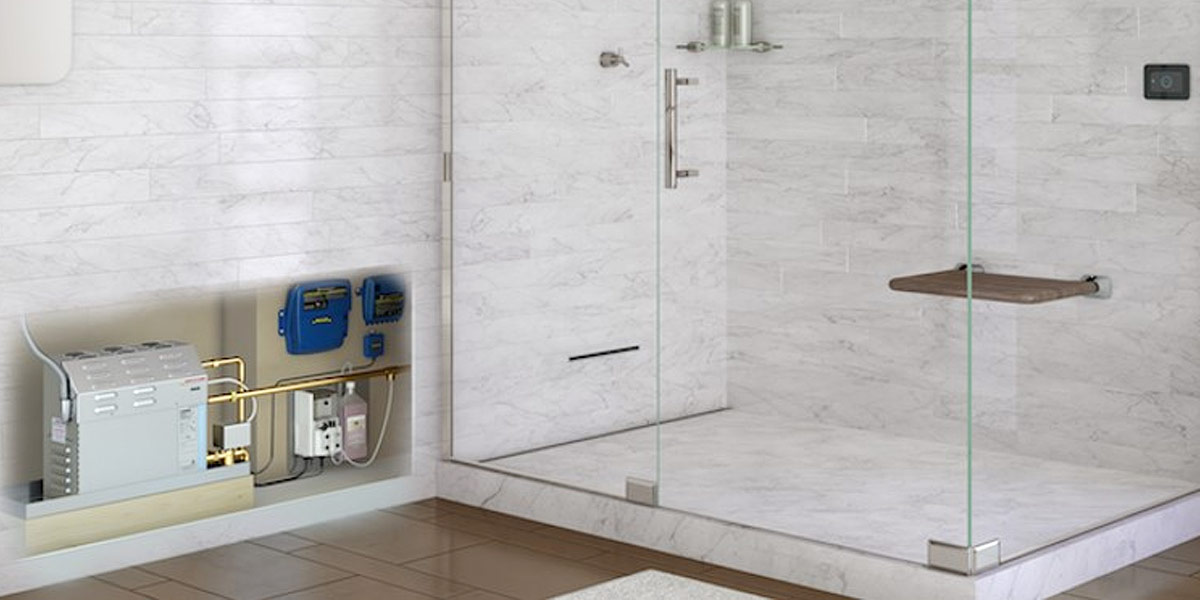
Not to be confused with saunas. A steam room is characterised by high humidity and moist heat instead of dry heat.
Potential Health Advantages
The physiological benefits of a sauna are virtually the same regardless of the heating method or the humidity present. A person's heart rate and blood vessel diameter rise during sauna time. Depending on how long you stay in the sauna, this has the same effect on your circulatory system as light to moderate exercise. While utilising a sauna, your heart rate could increase by 100-150 beats per minute. Possible health benefits include:
- Easing pain: Enhanced blood flow has been linked to a decrease in muscle soreness, an increase in joint mobility, and a decrease in arthritis pain.
- Reducing stress levels: Saunas have health benefits, including increased circulation and maybe reduced stress. Doing so can boost happiness levels.
- Improving cardiovascular health: One possible benefit of sauna use is a reduced risk of cardiovascular events due to reduced stress levels.
The risk of sudden cardiac death was reduced by 22% in individuals who used the sauna twice or thrice weekly compared to those who used it once weekly. People who used saunas four to seven times weekly had a 65% lower risk of sudden cardiac death and a 49% lower risk of mortality from cardiovascular disease compared to people who used saunas once a week.
More research is needed to confirm the possible link between sauna use and a reduced risk of death from cardiovascular disease. The cardiovascular benefits of sauna include reduced blood pressure and improved heart health. Despite encouraging research, sauna time is not a substitute for regular cardio. More research points to exercise's positive effects.
- Skin problems: Using a dry sauna dries out the user's skin. Sauna use has been linked to improved psoriasis symptoms in some people and an exacerbation of atopic dermatitis in others.
- Asthma: Some people with asthma report reduced symptoms after utilising a sauna. A sauna session might assist if you're having trouble breathing or relieve stress.
- Lower risk of Alzheimer’s: People who used saunas twice or thrice weekly had a 20% lower risk of developing Alzheimer's disease and a 22% lower risk of developing dementia. People who used saunas four times a week or more were 65 per cent less likely to get Alzheimer's disease, and those who used saunas four times a week or more were 66 per cent less likely to have dementia.
However, these findings cannot establish that sauna use is responsible for the protective effect. People living with dementia may never step foot in a sauna. Additional study is required to verify these results.
Advice For Sauna Safety: When Not To Use The Sauna?
Traditional sauna use as a method of heat exposure necessitates prior medical clearance. Here are several scenarios where you should call your doctor or skip your sauna session.
- Low Blood Pressure: Consult your physician if you suffer from low blood pressure, have trouble controlling your blood pressure, or are at risk for a heart attack.
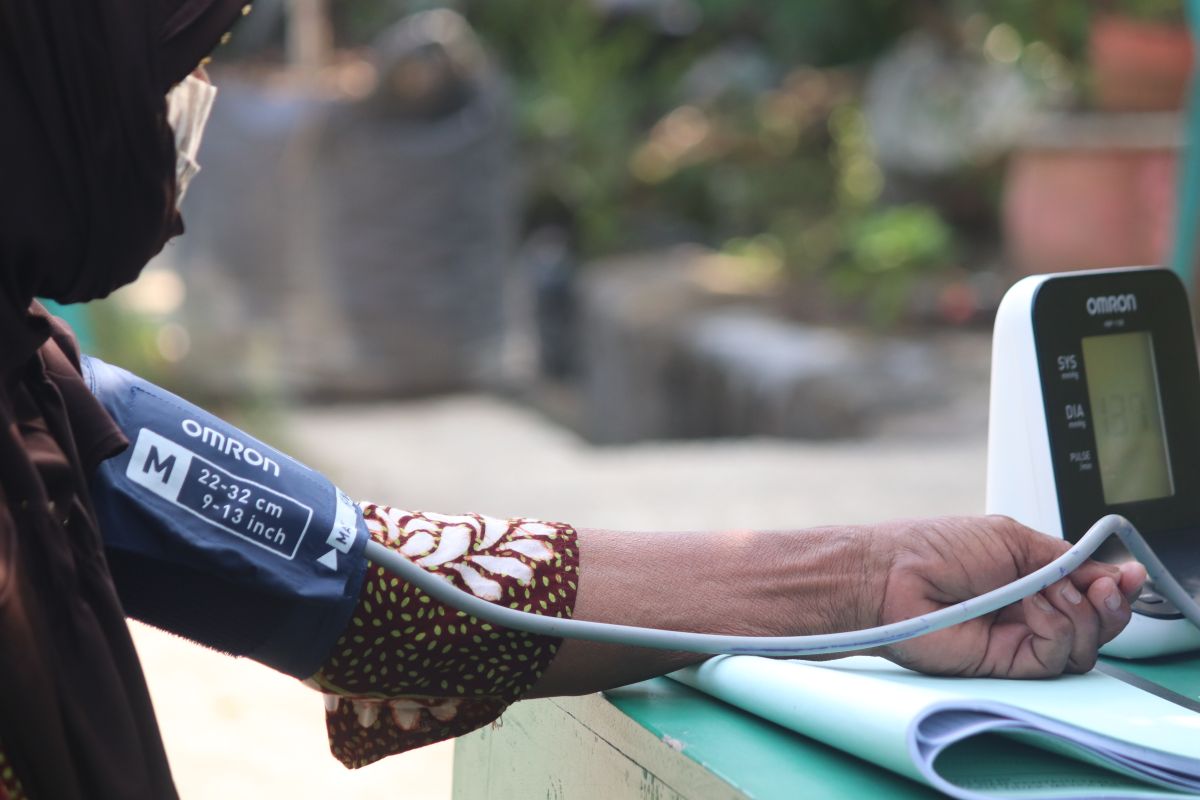
- Heart Attack Risk: Before utilising a sauna, it's important to consult your doctor if you have had a heart attack or are at high risk for one.
- Avoid Alcohol: Alcohol can cause dehydration, low blood pressure, irregular heartbeats, and abrupt death. It would be best not to take a sauna bath until your body has processed any alcoholic beverages you may have taken.
- Dehydration Risks: Dehydration from excessive sweating in a sauna is a potential risk for people with preexisting medical issues like kidney disease. Please consult your doctor and adhere to their recommendations for water intake.
- Pregnancy: Pregnant women should avoid using saunas. If you are pregnant, you should see your doctor before using a sauna.
- Fever, sickness or infections: If you aren't feeling well or are contagious, you shouldn't use the sauna to speed up your recovery or because you might spread your disease to other people.
These are just a few ideas; before incorporating new habits into your daily life, it's best to talk to a doctor.
How Old Do You Have To Be To Use An Infrared Sauna?
No matter your age, infrared saunas have many positive effects on your body. Is that so? Many individuals are interested in infrared saunas because of the scientifically-proven health and wellness improvements linked to their use.
Age Limit Precautions
Is it safe for people of all ages to use infrared sauna technology, which has been shown to improve health and well-being? Although there is no hard and fast rule about how old you must be to use an infrared sauna, you should consider these factors before deciding. It's crucial to think about your health as a whole. When determining whether sauna use is safe, a person's medical history, current state of health, and physical capacities should be considered. If you have any doubts regarding your health and whether a sauna would benefit you, it's advisable to talk to your doctor. At this point, it's also important to consider how you feel.
There are no hard and fast age restrictions for using an infrared sauna, but there are several recommendations to keep in mind. Children and older adults, in particular, may need extra caution when using saunas, especially if their health is less than ideal. While these people probably shouldn't use a sauna, most healthy adults probably can.
Children And Sauna Use
Unfortunately, youngsters should not use saunas. According to health experts, Children under 12 should not use saunas. Children's bodies, still in the process of maturation, may have trouble maintaining a steady core temperature. This increases the danger of dehydration and heat fatigue for them. In general, youngsters should not use saunas.
- Note: Never leave a youngster unsupervised in a sauna, as the extreme heat could harm a child's health.
Elderly And Sauna Use
Sauna use may require extra caution from older people. I'm referring to people who already suffer from health issues like cardiovascular disease, hypertension, or diabetes. Even though saunas can help healthy people strengthen their cardiovascular systems and lower their blood pressure, the consequences may differ for older people.
If an older adult is considering using a sauna, getting their doctor's approval is preferable first. Sauna use may worsen symptoms of diseases and disorders that impair the body's ability to maintain a normal core temperature. In addition, several drugs may have negative interactions with saunas. Regarding sauna use, it's recommended to avoid caution and check with your doctor first.
Benefits Of Infrared Sauna Use For Younger Adults
- Mental Health: Young folks struggling with despair or anxiety may benefit the most from the sauna's positive effects on mental health. The stresses of young adulthood are real, but infrared saunas offer a way to alleviate these tensions and unwind. Saunas are a great way to de-stress after a long day at work or school and can even induce a meditative state.
- Skin Health: Sitting in a sauna can do wonders for the skin of teenagers and young adults who suffer from hormonal acne. Sauna use might result in a more radiant appearance since the heat and steam assist in opening pores and boosting circulation. The body is cleansed of all toxins thanks to this method.
- Muscle Recovery: Although young adults are more likely to engage in sports and workouts, they must focus on their recovery afterwards. Saunas help those with more active lifestyles recover their muscles faster. This easy modification to your workout programme can help you recover faster and with less muscular soreness.
Benefits Of Infrared Sauna Use For Older Adults
- Improved Circulation: Saunas boost circulation and are especially helpful for older adults who tend to sit about all day. Infrared saunas are helpful for various health ailments, including poor circulation, arthritis, and chronic pain.
- Pain Relief: Infrared saunas are great for people with persistent discomfort, such as arthritis. Sauna therapy can help alleviate pain for older people by lowering inflammatory levels.
- Cardiovascular Health: The cardiovascular system benefits greatly from infrared sauna use. Sauna use can help those who need to improve their cardiovascular health by raising their heart rate while decreasing their blood pressure.
A portable sauna can provide a soothing and healing environment when used properly. By taking the necessary precautions, portable saunas users can safely reap these devices' health benefits. Safety should always come first, so if you have health concerns before using a portable sauna, talk to a doctor.
FAQs About Sauna
After a sauna session, allow your body to cool down gradually. Step out of the sauna and sit or lie down in a cool area. Hydrate yourself with water or a light electrolyte drink to replenish lost fluids. Avoid taking a cold shower immediately after the sauna, as it can shock your body. Wait until your body temperature returns to normal before taking a shower.
To maintain the heating element's efficiency and safety, inspect it regularly for any signs of wear or damage. Keep the heating element clean and free from dust or debris. Follow the manufacturer's instructions on how to care for the heating element properly.
Regular cleaning is essential to maintain hygiene and extend the life of your portable sauna. After each use, wipe down the interior with a mild disinfectant solution to remove sweat and bacteria. Also, clean the sauna accessories like towels and seat covers regularly.
Choose a well-ventilated area with plenty of space around the portable sauna for air circulation. Avoid setting up the sauna in small enclosed spaces or directly under direct sunlight. A level and heat-resistant surface like a wooden deck or patio is ideal for placing the sauna.
Before using a portable sauna, make sure you are well-hydrated by drinking plenty of water. Avoid consuming alcohol or heavy meals before your sauna session, as they can affect your body's ability to handle heat. Take a quick shower to cleanse your skin and remove any lotions or oils that may reduce sweat production. Also, ensure the sauna is set up on a stable and heat-resistant surface.
Conclusion
This article discusses the safety precautions when using a portable sauna, focusing on the benefits of saunas and their potential health benefits. A sauna is a room heated between 158 and 212 degrees Fahrenheit (70 and 100 Celsius), with dry heat and 10% and 20% relative humidity. Saunas can increase core body temperature by up to 40 degrees Celsius (104 degrees Fahrenheit). Sweating heavily is a natural response to a rising core body temperature, and the heart rate rises as a protective mechanism.
There are various types of saunas, including wood burning, electrically heated, infrared, and steam rooms. The method of heating the chamber determines the type of sauna, with wood burning having high temperatures and low humidity, electrically heated saunas being hot and dry, infrared saunas being heated by wood or electricity, and steam rooms being high humidity and moist heat.
The physiological benefits of a sauna are similar regardless of the heating method or humidity. A person's heart rate and blood vessel diameter rise during sauna time, which has the same effect on the circulatory system as light to moderate exercise. Possible health benefits include easing pain, reducing stress levels, improving cardiovascular health, and reducing the risk of sudden cardiac death. However, more research is needed to confirm the link between sauna use and a reduced risk of death from cardiovascular disease.
Skin problems can also be addressed through sauna use, with some people reporting improved psoriasis symptoms and exacerbation of atopic dermatitis. Asthma can be reduced, and the risk of Alzheimer's disease is lower for those who use saunas twice or thrice weekly. However, these findings cannot establish that sauna use is responsible for the protective effect, as people with dementia may never step foot in a sauna.
Sauna safety is crucial for individuals of all ages, and there are no hard and fast age restrictions for using infrared saunas. However, there are several recommendations to keep in mind, especially for children and older adults. Children under 12 should not use saunas, as they may struggle with maintaining a steady core temperature and may experience dehydration and heat fatigue. Older adults should consult their doctor before using a sauna, as sauna use may worsen symptoms of diseases and disorders that impair the body's ability to maintain a normal core temperature.
Infrared saunas offer numerous benefits for young adults, including mental health, skin health, muscle recovery, and improved circulation. They can help alleviate stress and anxiety, improve skin health, and aid in muscle recovery. Saunas can also help with pain relief, as they can help lower inflammatory levels. Additionally, infrared saunas can help improve cardiovascular health by raising heart rate and decreasing blood pressure.
Portable saunas can provide a soothing and healing environment when used properly, but safety should always come first. If you have health concerns before using a portable sauna, consult a doctor to ensure the safety of your health. Overall, infrared saunas offer numerous benefits for individuals of all ages, but it is essential to consult a doctor before using them.
Content Summary:
- What precautions should you take when using a portable sauna?
- Have you ever considered the risks of sauna and how to lessen them?
- So that you can reap the health advantages of this age-old practice without putting yourself in danger, this article will cover the fundamentals of portable sauna safety.
- Drink plenty of water, limit your sauna time, and maintain a reasonable heat setting when using a portable sauna.
- Following these three simple rules will help you avoid dehydration, hyperthermia, and other dangers while using a sauna.
- Prioritise safety at all times, and you can reap the stimulating benefits of saunas without putting yourself in harm's way by following these rules.
- These safety measures are important, but they are only some of what portable saunas offer.
- The essay will go over how saunas improve your health, such as stress relief and better blood flow.
- To ensure you get the most out of your sauna time, we will also offer tips from renowned health experts on making the most of portable saunas.
- The method of heating the chamber determines the type of sauna.
- A floor-mounted electric heater warms the sauna room.
- The physiological benefits of a sauna are virtually the same regardless of the heating method or the humidity present.
- A person's heart rate and blood vessel diameter rise during sauna time.
- Reducing stress levels: Saunas have health benefits, including increased circulation and maybe reduced stress.
- More research is needed to confirm the possible link between sauna use and a reduced risk of death from cardiovascular disease.
- The cardiovascular benefits of sauna include reduced blood pressure and improved heart health.
- Despite encouraging research, sauna time is not a substitute for regular cardio.
- Asthma: Some people with asthma report reduced symptoms after utilising a sauna.
- A sauna session might assist if you're having trouble breathing or relieve stress.
- Lower risk of Alzheimer's: People who used saunas twice or thrice weekly had a 20% lower risk of developing Alzheimer's disease and a 22% lower risk of developing dementia.
- People who used saunas four times a week or more were 65 per cent less likely to get Alzheimer's disease, and those who used saunas four times a week or more were 66 per cent less likely to have dementia.
- However, these findings cannot establish that sauna use is responsible for the protective effect.
- People living with dementia may never step foot in a sauna.
- Traditional sauna use as a method of heat exposure necessitates prior medical clearance.
- Here are several scenarios where you should call your doctor or skip your sauna session.
- Low Blood Pressure: Consult your physician if you suffer from low blood pressure, have trouble controlling your blood pressure, or are at risk for a heart attack.
- Heart Attack Risk: Before utilising a sauna, it's important to consult your doctor if you have had a heart attack or are at high risk for one.
- If you are pregnant, you should see your doctor before using a sauna.
- No matter your age, infrared saunas have many positive effects on your body.
- It's crucial to think about your health as a whole.
- If you have any doubts regarding your health and whether a sauna would benefit you, it's advisable to talk to your doctor.
- There are no hard and fast age restrictions for using an infrared sauna, but there are several recommendations to keep in mind.
- Children and older adults, in particular, may need extra caution when using saunas, especially if their health is less than ideal.
- While these people probably shouldn't use a sauna, most healthy adults probably can.
- Unfortunately, youngsters should not use saunas.
- According to health experts, Children under 12 should not use saunas.
- Use Sauna use may require extra caution from older people.
- If an older adult is considering using a sauna, getting their doctor's approval is preferable first.
- Regarding sauna use, it's recommended to avoid caution and check with your doctor first.
- Mental Health: Young folks struggling with despair or anxiety may benefit the most from the sauna's positive effects on mental health.
- The stresses of young adulthood are real, but infrared saunas offer a way to alleviate these tensions and unwind.
- Saunas are a great way to de-stress after a long day at work or school and can even induce a meditative state.
- Skin Health: Sitting in a sauna can do wonders for the skin of teenagers and young adults who suffer from hormonal acne.
- Saunas help those with more active lifestyles recover their muscles faster.
- Improved Circulation: Saunas boost circulation and are especially helpful for older adults who tend to sit about all day.
- Infrared saunas are helpful for various health ailments, including poor circulation, arthritis, and chronic pain.
- Pain Relief: Infrared saunas are great for people with persistent discomfort, such as arthritis.
- Sauna therapy can help alleviate pain for older people by lowering inflammatory levels.
- Cardiovascular Health: The cardiovascular system benefits greatly from infrared sauna use.
- A portable sauna can provide a soothing and healing environment when used properly.
- By taking the necessary precautions, portable saunas users can safely reap these devices' health benefits.
- Safety should always come first, so if you have health concerns before using a portable sauna, talk to a doctor.

